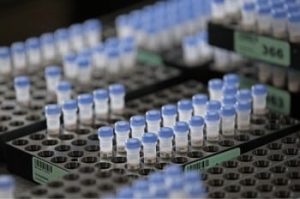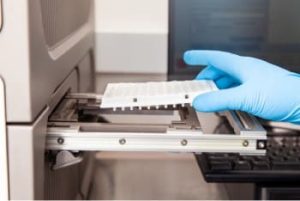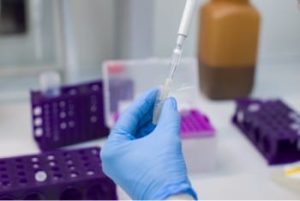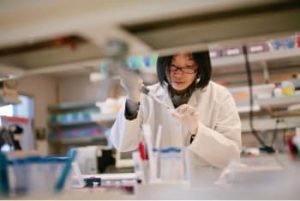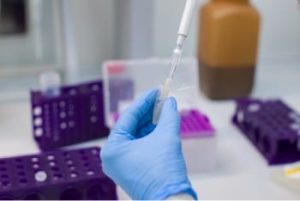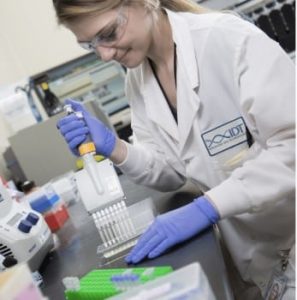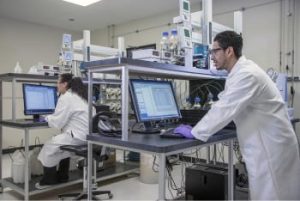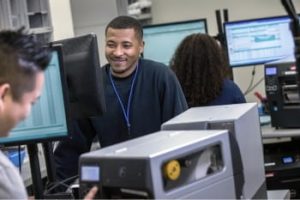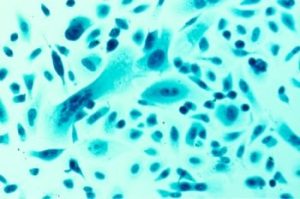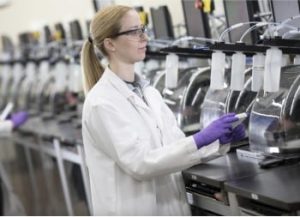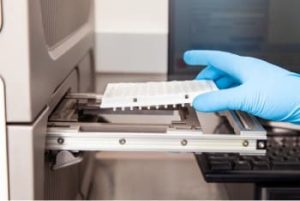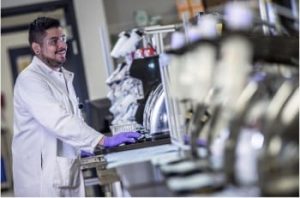In the rapidly evolving field of molecular pathology, the role of organizations like the Association for Molecular Pathology (AMP) are more crucial than ever. Laurie Menser, CAE, the CEO of AMP, provides a unique perspective on the challenges and advancements in this field, emphasizing the importance of education, speed of discovery, and the promising future of implementing artificial intelligence (AI). In this interview with IDT at the AMP 2024 Annual Meeting and Expo, Menser shares her journey, the mission of AMP, and how the organization is poised to support molecular pathologists and oncologists in optimizing patient care.
A journey of dedication and a rapidly evolving landscape
Menser’s journey with AMP began long before she assumed the role of CEO in January 2024. With a background in strategic development and marketing within AMP, Menser’s dedication to the organization is clear with her nearly 17-year commitment to the association, and her involvement is also deeply personal. Her mother’s battle with non-small cell lung cancer (NSCLC) highlighted the critical role of molecular testing in patient care and fueled her passion for AMP’s mission.
“Seeing the perspective of the patient and how testing can impact their journey, making sure it's covered, and getting the right test, I realized the importance of our work,” Laurie reflects. “It’s not just a job—it’s a mission I genuinely believe in.”
Menser notes the dynamic nature of molecular pathology, specifically how the field’s rapid advancements pose both opportunities and challenges. The speed of discovery often outpaces the existing infrastructure, creating a constant need for updated education, practice guidelines, and regulatory frameworks.
“Our biggest asset is also the hardest thing to face: our speed. We’re moving faster than the systems built to support us,” Menser explains. She also highlights how AMP works to face this challenge: “AMP tackles challenges from three directions: education, clinical practice improvement, and public policy and advocacy.”
Collaboration and education
Menser underscores the importance of collaboration between pathologists and oncologists to enhance patient care. AMP works closely with oncology societies to develop practice guidelines and educational programs, fostering integrated care teams.
“Education and practice guidelines should be developed together to ensure everyone is on the same page,” Menser asserts. “The more pathologists and oncologists collaborate the better care patients will receive.”
Navigating regulatory and reimbursement challenges
Although integrated care teams can make a significant impact on outcomes, regulatory and reimbursement issues remain significant hurdles in the field. Menser explains that without proper coverage, patients may not receive the necessary tests, which can impact treatment outcomes. “Reimbursement and coverage are patient access issues. If people aren’t getting paid, patients aren’t getting tested,” Menser states. “We need to ensure that appropriate testing is covered to provide the best patient care.”
Global perspectives
While the educational efforts of AMP primarily focus on the U.S., Menser is keenly aware of the global landscape. She notes the importance of monitoring international regulatory frameworks and how different healthcare systems approach coverage and reimbursement.
“We closely follow European regulatory issues like In vitro Diagnostic Regulation (IVDR). It will be interesting to see if providing easy access to testing in other countries leads to better patient outcomes and economic benefits,” Menser says.
Menser is particularly interested in data emerging from countries that have made significant efforts to make comprehensive testing more accessible. For example, Germany's initiatives in whole exome sequencing (WES) could provide valuable insights into how widespread access to testing impacts patient outcomes and healthcare costs.
“Systems that provide comprehensive coverage might show that early access to testing leads to better patient outcomes and could be more economical in the long run. This kind of data can influence how testing is covered in the U.S.,” Menser explains.
Promise of AI and machine learning
One of the most exciting developments in molecular pathology is the integration of AI and machine learning. Menser discusses the potential of these technologies to revolutionize the field, particularly in managing the vast amounts of data generated by next generation sequencing (NGS).
“AI and machine learning are coming hard and fast in molecular pathology. These technologies will support the field long-term, but they won’t replace the role of the pathologist or the laboratory,” Menser emphasizes. “You need someone who understands it well enough to say when it’s wrong.”
The application of AI and machine learning in molecular pathology can significantly enhance data analysis, making it possible to interpret the immense volumes of information generated by NGS more efficiently. These technologies can help identify patterns and insights that may not be immediately apparent to human analysts, thus expediting the discovery process and improving diagnostic accuracy.
Supporting innovation and collaboration in molecular pathology
AMP celebrated its 30th year as an association at the 2024 annual meeting in Vancouver. As the organization continues to navigate the complexities of the molecular pathology field, Menser’s leadership and vision will be instrumental in driving the organization forward. By addressing challenges from multiple angles and embracing new technologies, AMP is well-positioned to support molecular pathologists and laboratory professionals in the ever-changing landscape of this field.
To learn more about how IDT supports researchers in molecular pathology with NGS research solutions, visit idtdna.com/CancerResearchSolutions.

